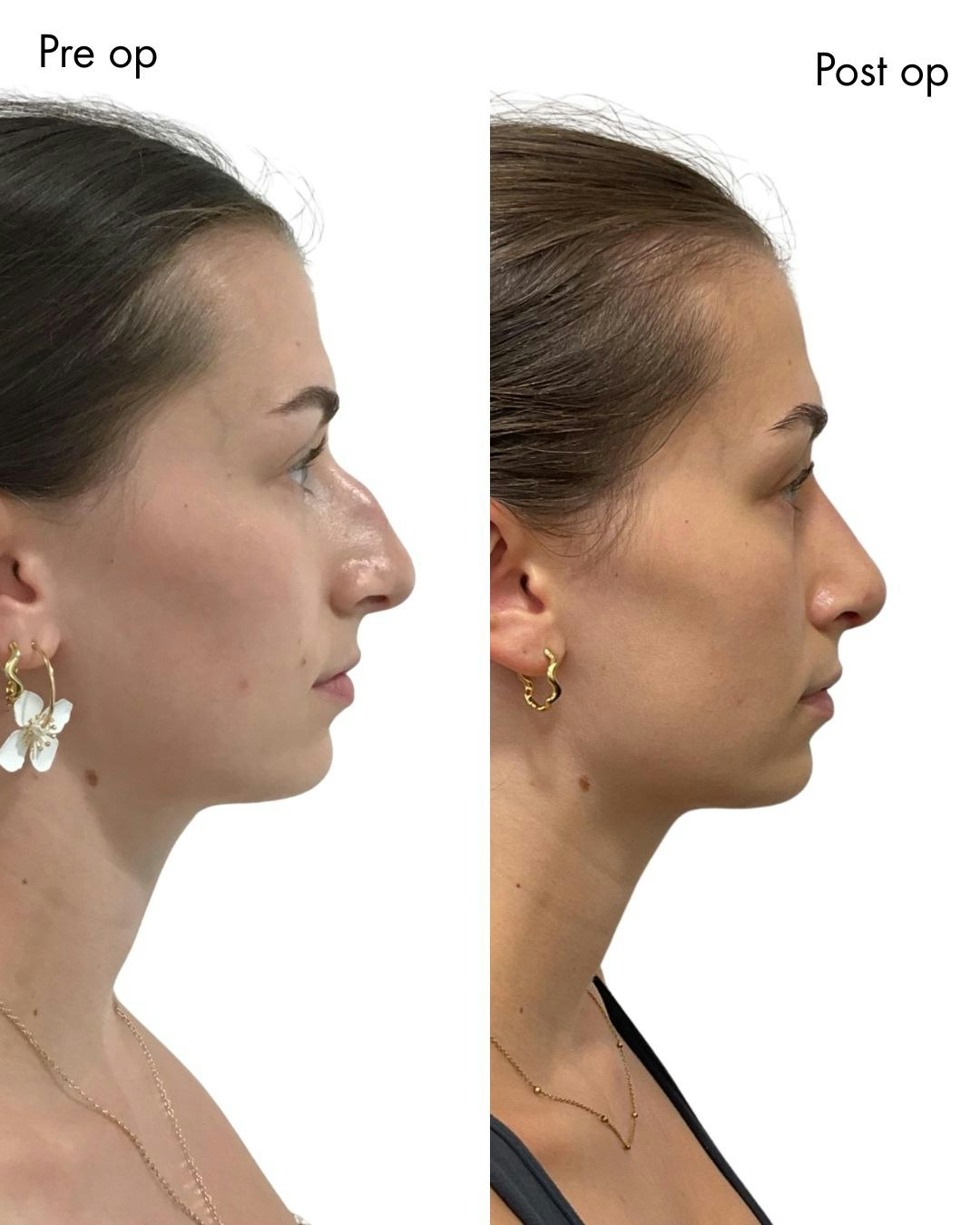The results of an extensive nationwide study exploring the perceptions of cosmetic surgery has been released by leading UK provider MYA Cosmetic Surgery.
Working with over 2,000 members of the British public, the independent study took respondents on the journey of cosmetic surgery patients of various ages, genders and procedures; telling their story through their own words and unedited before and after surgery images.
After hearing personal accounts from a variety of patients including young women who struggled with both the psychological and physical impact that the shape and sizes of their breasts had on their everyday lives, a mother and father both undergoing an abdominoplasty (tummy tuck) to remove excess skin and fat from their stomachs – the findings conclude:
1 in 4 people admit to having wrongly judged people in the past, purely for having cosmetic surgery
Over three quarters (83%) say they understand a patient’s decision to have cosmetic surgery after hearing their motivations and personal accounts
Nearly a third admit their perception of cosmetic surgery and those who have cosmetic procedures has changed
Two-thirds of people say they would support a friend or family’s decision to have cosmetic surgery
Nearly half of those who said they disagree with cosmetic surgery admit that hearing real encounters has given them a better understanding of why people consider cosmetic surgery
Honey Lancaster-James, independent Psychologist and Psychotherapist says,
“There is this judgement associated with cosmetic surgery that it is purely for vanity or perhaps to please other people but in reality, most of the time it is to remove a source of distress.
“In my personal experience, I had ear pinning surgery as a teen and I simply wanted to look at a photo and it not be the only thing I saw, or be able to put my hair up in a ponytail without feeling cripplingly embarrassed. It was something I wanted to do for me.
“The research shows that when we do listen to the motivations and understand more about the emotional strain and not just the physical impact of cosmetic surgery, we are much more empathetic of people’s experiences.”
One of the stories that resonated highly with people, was Phoebe’s story; a 20-year-old trainee nurse from Bristol who underwent a Breast Reduction with MYA Cosmetic Surgery.
Phoebe, explains,
“From a young age, I always had big boobs. I first went to my GP at 16 enquiring about breast reduction surgery and went through months of physiotherapy for my back as well as support with the psychological impact upon my mental health and self-confidence. Still, there was no funding from the NHS for surgery and I decided to look at private providers.” Read Phoebe’s story in full here
However, despite these promising findings, the study suggests there is still a significant amount of hypocrisy associated with the public perception of different procedures and patients.
When considering breast surgery, the understanding towards a desire to increase the size and shape of breasts is somewhat lower than that to reduce them; with 82% of respondent empathising with a breast reduction, as opposed to 64% understanding a breast enlargement.
In reference to a mother and father both undergoing an abdominoplasty (tummy tuck), the public were significantly more understanding of a female’s decision to alter her stomach and excess skin as a result of childbirth (78% agreed), in comparison to that of a male’s decision to have excess fat and skin removed as a result of substantial weight loss (55% agreed).
Alex, a 35-year-old father and MYA Cosmetic Surgery patient who underwent an abdominoplasty and liposuction procedure shared his story,
“After losing 6 stone in weight over a 10-year period, I was really struggling to shift the stubborn fat pockets around my stomach and flanks – and had an overhang of saggy skin. The weight loss was so bittersweet because of the excess skin I had as a result. I was still massively self-conscious about my stomach because of this and knew no number of sit-ups or time in the gym would rectify it.” Read Alex’s story in full here.
Honey Lancaster-James explains,
“From a psychological perspective, it’s really interesting to see how we’re still stuck in a world where there is far more acceptance and understanding of physical strain over emotional and mental strain; where people think that physical discomfort such as backache, neck pain etc. provides a more acceptable reason to have surgery than if someone is struggling with emotional pain or mental distress.”
Anne Harrison, Director of Patient Services at MYA Cosmetic Surgery says,
“Having worked in the cosmetic surgery industry for over 12 years now, the results of the research don’t surprise me; we’re well aware of the perceptions and stigma surrounding cosmetic surgery and the role we play in needing to present the true picture of cosmetic surgery and helping to reduce this judgement that is projected onto patients.”
Hannah, a 27-year-old from Hampshire had a breast enlargement and uplift with MYA Cosmetic Surgery explains,
“Cosmetic Surgery is nothing to be ashamed of and it’s a really brave decision to make. No one has cosmetic surgery for nothing and it isn’t a decision that is taken lightly. It’s a big thing to put your body and mind through and a lot more people have cosmetic surgery than you think but are scared to admit it. I am not scared; it was something I had to do for myself as it was a massive insecurity of mine.” Read Hannah’s story in full here
Where do these perceptions of cosmetic surgery come from?
According to the research conducted by MYA Cosmetic Surgery, just 15% of people say the stories they see about cosmetic surgery in the media are positive.
Over 1 in 3 say they would like to see more diversity in the articles they read surrounding cosmetic surgery and nearly half (46%) say they would like to see more people openly discussing low body confidence.
Honey Lancaster-James explains,
“We are, of course, influenced by what we see around us. I think one of the problems psychologically is that when you think about the image of cosmetic surgery that you see, it’s only the most extreme cases because that’s the only ones that you notice.
What you don’t notice is the average person, like me, walking down the street who’s had their ears pinned, or with the subtle breast enhancement or rhinoplasty (nose job).
“People have this perception of cosmetic surgery that is really quite removed from most people’s genuine experiences”.
Anne Harrison, Director of Patient Services at MYA Cosmetic Surgery explains,
“The image of cosmetic surgery has almost become a self-fulfilling prophecy. Obviously, the extreme outcomes are what sell stories and grab your attention but the reality is really quite different from that.
“The stories above really aren’t unusual; the thousands of patients that come through our doors every day are just the ordinary girl next door, or dad walking down the street where you really wouldn’t notice that they’d had anything done. They talk to me about the way a certain feature makes them feel and holds them back emotional, physically and mentally, not about how they’re aiming for the perfect outer appearance.
“We’re now the number 1 provider of cosmetic surgery in the UK and take that responsibility seriously. We’re committed to showing the true picture of cosmetic surgery and people’s real motivations.”
What you need to know if you or a friend or family member is considering cosmetic surgery
Anne Harrison, Director of Patient Services at MYA Cosmetic Surgery explains the vital steps you should be taking…
1. Make sure you've really considered it
“Surgery of any kind is a big decision and something that should never be taken lightly. Take your time, most of our patients have been thinking about this for years, considering all of their options and doing a lot of research.”
2. Do your research
“Spend as much time as you can to fully understand every part of the process; from what the procedure entails to the aftercare offered and the risks that are associated with any form of surgery, so you have realistic expectations of what cosmetic surgery can achieve for you.
Speaking with people who may be going through a similar process or who’ve previously had the procedure might also be beneficial and comforting; we have over 75,000 members on our MYA forum who share their experiences, answer questions and even share their personal before and after images. It’s also a useful tool for family and friends to understand more about the process and even ask an expert any questions they might have.”
3. Speak to professionals
“Speaking with reputable, licensed providers and experienced surgeons is vital to ensure you receive the appropriate and comprehensive amount of information that will help you to make better-informed choices and receive the best possible care.
“In the UK, all surgeons should be registered with the Royal College of Surgeons and be on the General Medical Council (GMC) surgical specialist register.
The Private Healthcare Information Network (PHIN) is an independent, government-mandated source of information that provides patients with comprehensive, trustworthy information on both quality and price within private healthcare.









